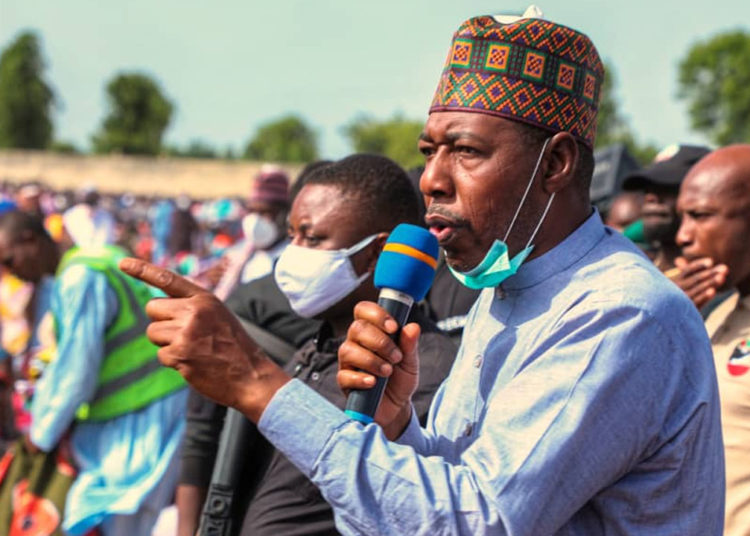Many residents of Dikwa town in Dikwa local government area of Borno State thronged the streets on Thursday protesting the rising cost of living amid economic crunch in the country.
The protesting residents, of which majority were reported to be among the surrendered terrorists and family members undergoing rehabilitation at an Internally Displaced Persons (IDPs) camp in Dikwa, threatened to return to their former abode in Sambisa Forest if the harsh condition continued.
In video clips obtained by journalists in Maiduguri, the protesters comprising hundreds of women and children were seen lamenting in the street, saying “hunger and thirst are killing us.”
According to an eyewitness, the protesters described their problems as a double tragedy due to lack of access to their farmlands and severe shortage of food stuff due to activities of Boko Haram terrorists.
A top government source who preferred anonymity said, Dikwa town is suffering from severe food shortage as a result of the collapse of means of livelihood since the Boko Haram crisis paralysed economic activities in the ancient town.
“It is sad that things have gotten to this level, the women are threatening to join the insurgents due to lack of food to feed their families. You can agree with me that our governor, Babagana Zulum has been trying his best, but the situation is overwhelmed with issues.
“President Tinubu should urgently intervene. This is beyond what the state alone government can handle. We need special intervention as soon as possible to cushion the effects of hardships our people are going through presently.
It was alleged that the insurgents in the adjoining bushes were luring the residents with incentives to cross over to their side to address their food problems.
Meanwhile, the Borno State governor, Babagana Zulum has approved the distribution of food palliatives to over 100,000 families in Maiduguri and Jere local government area.
The governor reiterated his government’s commitment to ensuring the welfare of Borno’s citizens, particularly to families struggling to access basic necessities in the face of rising food prices.
Zulum announced the approval on Thursday during a meeting with ward working committee members including traditional rulers, elders and community leaders.
We’ve got the edge. Get real-time reports, breaking scoops, and exclusive angles delivered straight to your phone. Don’t settle for stale news. Join LEADERSHIP NEWS on WhatsApp for 24/7 updates →
Join Our WhatsApp Channel










